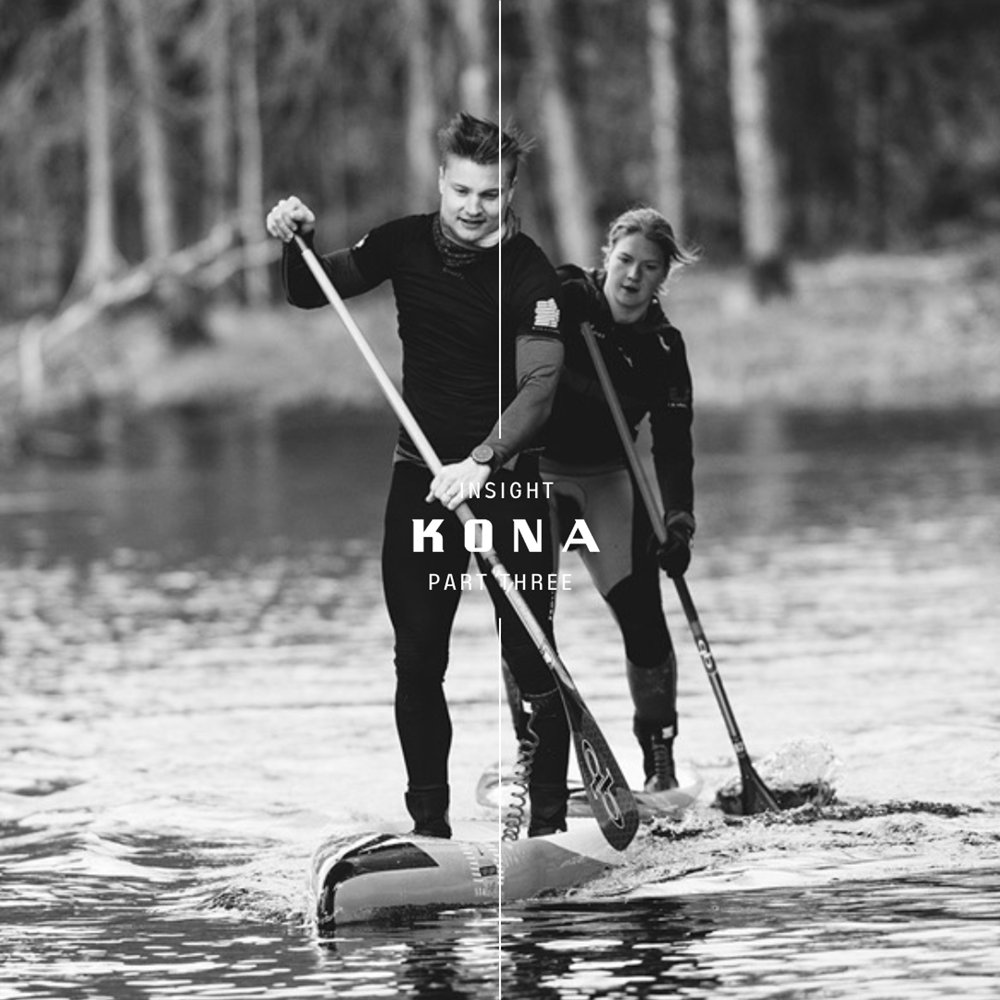
So what makes SUP so special?
What makes SUP so developmental, in my opinion, lies largely in the fact that we learn to relate to a context that we arenot normally accustomed to handling. A context that our brain perceives as extremely risky but is not actually so. If westill dare to step out onto the board, the decision itself creates better conditions for handling other activities and challenges. Actually daring is one of the most important aspects when it comes to training effects and personaldevelopment.
To understand what makes SUP so special, we first need to examine the context and influencing factors. First comes the environment itself, and in this case, the marine environment, then the unstable support surface, namely a board on water. Both of these factors affect us humans in a way that we find very difficult to handle. For the most part, ourreactions occur at an unconscious level.
With extensive experience in both conventional wave surfing and freediving as well as in "Evology" (reflex-controlledbehaviors), I am well aware of how and why I am so strongly affected by the element of water. Through evolution, wehave learned that water is a potentially dangerous environment, where we either risk drowning or where various types ofpredators reside. At the same time, we also recognize all the vital benefits of water.
This evolving conflict between risk and opportunity contributes to sharpening all our senses. Not only when we are on or in the water but also when we are near it. This can be connected to the "Blue Mind Theory", which suggests that watercontrols our focus and thereby provides recovery from all the problems that we normally worry about. Used, among otherthings, to treat PTSD, etc.
In addition to the somatic reflexes triggered by the environment, we have additional reflexes that aim to keep us uprightand prevent us from falling, as we both risk injury and are easier prey for predators if we were to fall to the ground or, worse yet, in the case of the brain, into the water. When all these reflexes are activated, there is no room to think aboutanything else. The brain's primary focus during SUP paddling is simply that we should not end up in the water. Howexperienced we are matters less.
With these effects, practically all of our systems and muscles are activated when we stand on a SUP board. Primarily, our stabilizing muscles but also our mobilizing muscles are engaged as assistance. Another reflex that humans have is to stretch to raise our center of gravity when we feel threatened. In addition to making us look bigger and morethreatening, we are easier to move and able to escape with a high center of gravity. This activates the very muscles thatstraighten the skeleton.
The result of this is that our discs in the back and neck are relieved, but also our joints. After SUP paddling, many peopleexperience feeling lighter, which is believed to be due to this particular reflex. The problem, or rather, one of the advantages, is that when we're out there on the water, we can't escape the situation. Instead, we are forced to relate to it...
More on this never-ending source of inspiration will come in the next “SUPerior insights - Part Four
Stand up for your helth and functionality - See you on the water!
/Magnus R Lindstedt
Magnus 18/03/2024 15:56